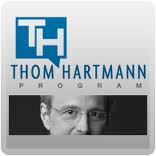 On July 1, Vermont implemented a law requiring disclosure labels on all food products that contain genetically engineered ingredients, also known as genetically modified organisms or GMOs.
On July 1, Vermont implemented a law requiring disclosure labels on all food products that contain genetically engineered ingredients, also known as genetically modified organisms or GMOs.
Wenonah Hauter, executive director of Food and Water Watch, hailed the law as "the first law enacted in the U.S. that would provide clear labels identifying food made with genetically engineered ingredients. Indeed, stores across the country are already stocking food with clear on-package labels thanks to the Vermont law, because it's much easier for a company to provide GMO labels on all of the products in its supply chain than just the ones going to one state."
What that means is that the Vermont labeling law is changing the landscape of our grocery stores, and making it easier than ever to know which products contain GMOs.
And less than a week later after that law went into effect, that Vermont law is under full-out attack.
Monsanto and their bought-and-paid-for toadies in Congress are pushing very legislation to override Vermont's law. Democrats who oppose this effort call the Stabenow/Roberts legislation the "Deny Americans the Right to Know" Act, or DARK Act.
This isn't the first time that a DARK Act has been brought forward in the Senate, and one version of the bill was already shot down earlier this year.
The most recent version of the bill was brought forward by Michigan Democratic Senator Debbie Stabenow and Kansas Republican Senator Pat Roberts, both of whom have received substantial contributions from BigAg.
Stabenow has received over $600,000 in campaign contributions since 2011 from the Crop Production and Basic Processing Industry, and Pat Roberts has received over $600,000 from the Agricultural Services and Products industry.
When Senator Stabenow unveiled the industry-friendly legislation, she boasted that, "For the first time ever, consumers will have a national, mandatory label for food products that contain genetically modified ingredients."
Which sounds great, and it would be great, if it were true.
But the fact is, the DARK Act would set up a system of voluntary labeling that would overturn Vermont's labeling law and replace it with a law that's riddled with so many loopholes and exemptions that it would only apply to a very few products, and there's no enforcement mechanism and no penalties or consequences of any kind for defying the bill. It also allows for labeling GMO-containing foods to be "labeled" with a QR code, those black squares that can only be read by your smartphone or computer. That lets manufacturers say, "We labeled it!" but prevents all but the most tech-savvy consumers from figuring out what the code means.
The Vermont labeling law, by the way, isn't a law that just somehow managed to slip through Vermont's legislature: the state legislature spent two years debating it, held more than 50 committee hearings and heard testimony from more 130 representatives before passing the bill in 2010.
Monsanto is pushing its puppets to pass the DARK Act quickly this week, effectively killing Vermont's labeling law without a single hearing on the issue of labeling foods or seeds.
Despite the fact that nine of out of ten Americans support laws requiring clear GMO labeling, members on both sides of the aisle in Congress would rather pass legislation to help Agricultural giants like Monsanto pad their bottom lines instead of passing a law that nine out of ten Americans actually support.
And while conservatives normally profess to hate federal overreach and profess to love state's rights, there are bought-off politicians in both political parties pushing to pass the DARK Act and overturn Vermont's labeling law.
Opponents of GMO labeling have, in the past, said that the costs to clearly label products would require "expensive new packaging" , but the DARK Act gives the lie to that, this labeling fight is clearly about Monsanto and other agricultural giants making sure that Americans don't know what's in their food.
This law that Monsanto's puppets in Congress are pushing would cost companies roughly the same as the Vermont labeling law, because it would also require new labeling.
But instead of having a clear label, the new packaging would allow a QR code to scan or a toll-free number to call to find out whether a certain product contains GMOs.
It won't save the companies any packaging money at all, but it would make it really, really hard for shoppers to find out whether or not a product contains GMOs.
If our democracy actually worked, this bill never would have seen the light of day, because people overwhelmingly want to know what's in their food and support GMO labeling.
But our democracy doesn't work, because our lawmakers are bought and paid for by special interests, like Monsanto and DuPont.
If we want our lawmakers to pass popular laws that actually work, we need to get money out of politics, we need to overturn Citizen's United, and we need to amend the Constitution to make it clear that political bribes aren't free speech, and corporations aren't persons.
Call the offices of Senators Roberts and Stabenow to let them know what you think about actual, clear GMO labeling, and then check out MoveToAmend.org for more about the campaign to get money out of politics.
How The Food Industry Destroys Democracy
By Thom Hartmann A...



